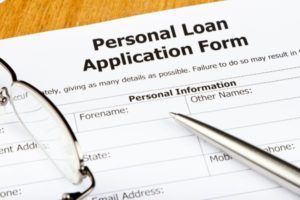Why Personal Loans Are Not Usually a Great Answer for Debt Relief
 Have you ever taken out a personal loan? Some people turn to a personal loan to make home improvements. In contrast, others depend on them to cover the costs of a wedding, while still others take out a personal loan to consolidate high-interest credit card debt or other high-interest debt. Personal loans are an unsecured financing option available to consumers who qualify, and according to credit reports, their popularity is on the rise.
Have you ever taken out a personal loan? Some people turn to a personal loan to make home improvements. In contrast, others depend on them to cover the costs of a wedding, while still others take out a personal loan to consolidate high-interest credit card debt or other high-interest debt. Personal loans are an unsecured financing option available to consumers who qualify, and according to credit reports, their popularity is on the rise.
Consumers like them because they are not limited like many other forms of lending: mortgages are for houses, auto loans are for vehicle purchases, etc. The personal loan can be used for any number of purposes. Yet this is one of the main problems – just because you can use a personal loan for almost anything doesn’t mean that doing so is a good idea.
For many, consolidating high-interest credit card debt with a personal loan is not a good idea.
Many Consumers Find Themselves Trapped in a Debt Cycle:
Consumers who take out a personal loan to consolidate their debt often forget that they still have their same old debt. It’s just in a new package. A significant number of consumers wipe out their credit card debt by taking out a personal loan to pay off their balances only to slowly, but surely, start charging on their credit cards again. In the end, they end up with their new personal loan balance and new balances on their credit cards. It’s a debt cycle that leaves consumers facing twice as much debt.
Don’t They Have Great Interest Rates?
While personal loans are not typically attached to outrageous interest rates or terms (like payday loans, for instance), they are also not the most efficient way to borrow money. If a borrower has good credit, they will most likely be able to get a better interest rate on a home equity loan than on a personal loan. If you are considering taking out a personal loan, take into consideration that the interest rate advertised is generally the “best” rate available. Still, it’s only available to those who qualify (so borrowers with outstanding credit).
Do Personal Loans Have “Other” Fees?
Many personal loans come with “other” fees. The most common is the origination fee of 1 to 6% of the initial loan balance. The origination fees cover the costs of processing the loan, and the amount is rolled into the loan balance or taken out of the amount the lender disburses. Additionally, for those concerned about the long term financial benefits or consequences associated with a personal loan, you could be penalized for paying the balance off early. Some consumers also run into trouble with personal loans because the monthly payment amount is fixed. If the consumer is used to dealing with varying payment amounts based on balances on credit cards and having as much time as necessary to pay off the full balance, they could find the fixed payment amount to be a struggle.
Personal loans can be the right solution depending on the individual and their financial situation, but for many, repositioning debt is not helpful. For others, it is actually damaging. If you are overwhelmed by debt and need debt relief , you may want to consider filing for bankruptcy to get a discharge of debt.
There is no shame in turning to bankruptcy to seek a discharge of debt when unintended circumstances leave you struggling to provide for your family. Are you out of choices? Do you need help releasing your family from the chains of debt? Don’t hesitate to call Kenneth C. Rannick P.C., Tennessee and Georgia bankruptcy attorney. We help good people through bad times.
The post Why Personal Loans Are Not Usually a Great Answer for Debt Relief appeared first on Kenneth C. Rannick, P.C..











